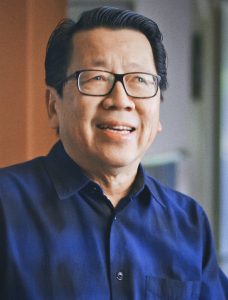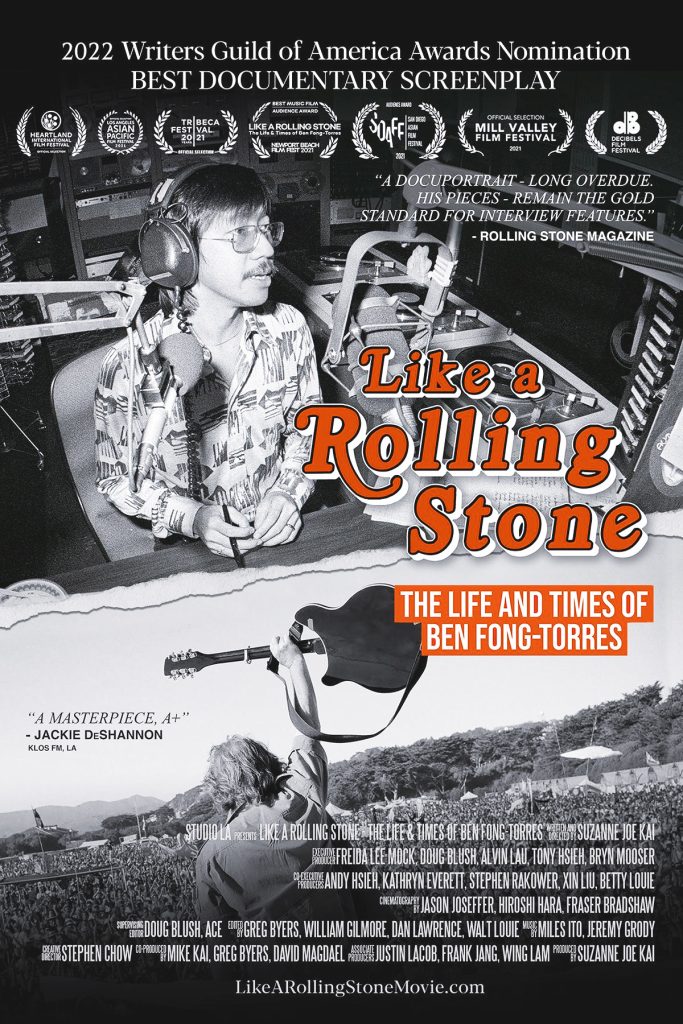
Gil Asakawa
When my family moved from Japan to the Washington, D.C., area in 1966 when I was 8 years old, I fell in love with American ways and U.S. pop culture.
One of the things I embraced wholeheartedly was American pop music — specifically, Top 40 music on AM radio stations that played hit after hit. I loved the energy of the fast-talking DJs, the commercials, even the melodious jingles (“WPGC, good guy radio,” “More music! WEAM!” or the always popular “The hits just keep on comin’!”) and, of course, the music. The mid-’60s was the golden era of the kind of catchy hit songs that appealed to an entire generation.
But the sounds of music also included the early rumblings of protest and counterculture perspectives.
One other sign that the times were a-changin’ was the launch of a new magazine called Rolling Stone, which was headquartered in San Francisco. It had stories about music first and foremost, along with reviews and feature stories galore, but it also covered the emerging counterculture and put the social evolution of the country into a larger context than mere pop culture.

Ben Fong-Torres in Netflix’s “Like a Rolling Stone: The Life and Times of Ben Fong-Torres”
By the time I started reading RS in the early 1970s, it was a monthly bible for my young, impressionable mind. There were names in the magazine’s masthead that I always noticed, including Ben Fong-Torres.
I knew from the name and photos that he was Asian American.
He began writing for RS in 1968 and was the magazine’s first music editor. I read dozens of stories and a handful of books by Fong-Torres. The world learned from the fictionalized biographical film “Almost Famous” in 2000 by the adult Cameron Crowe that Fong-Torres hired Crowe to write for RS as a teenager.
Fong-Torres has become a fixture of San Francisco’s music scene with a radio show (he was a DJ on the legendary KSAN during the 1970s) and as a host for the TV broadcast of the annual San Francisco Chinese New Year’s Parade, for which he’s won five Emmy Awards.
I got to meet Fong-Torres once when I was visiting San Francisco for a JACL board meeting. We sat in a tech company office where he worked at the time, and I expressed my gratitude to him for being one of my inspirations. He was gracious and appreciative. Having Asian Americans in the media is important — he made an impact on me simply by having his name in one of my favorite publications.
And now, filmmaker Suzanne Joe Kai has finished a project she started in 2010, “Like a Rolling Stone: The Life and Times of Ben Fong-Torres,” which is a comprehensive documentary about Fong-Torres’ long and winding road from young music fan to an elder statesman for his community. It made the rounds of film festivals and is now available to view on Netflix.

Suzanne Joe Kai spent more than 10 years working on “Like a Rolling Stone: The Life and Times of Ben Fong-Torres,” now on Netflix.
The film does a great job of weaving his family and personal life through the fabric of his amazing career, and Kai got backstage access following Fong-Torres at shows like Elton John, where he’s warmly greeted by the superstar.
The film also shows how much he’s loved by a range of musicians from Ray Manzarek of the Doors to Carlos Santana. Kai captures Fong-Torres’ meticulous archiving of his journalism, with recordings of every interview he’s ever done in file cabinets in his home office. She also weaves in clips of his interviews (Stevie Wonder! Marvin Gaye! Linda Ronstadt! Tina Turner!) into the documentary.
The documentary puts Fong-Torres into a larger cultural context with the anti-Chinese mood in the U.S., even in the 1800s, and through his family’s challenges against racism. The film also explains Fong-Torres’ name: It was a way to get around the Chinese Exclusion Act of 1882 by buying an identity and passport as a Filipino, a country from which immigrants were allowed.
The film is rich with insights and leads to an even greater appreciation for Fong-Torres’ life. But one of my favorite scenes is when Kai has Fong-Torres reminiscing about his early inspiration and why he fell in love with Top 40 radio in his childhood. He calls out Bay Area radio jock Gary Owens and credits him for his love of radio even to this day, mimicking Owen’s deep resonant voice.
“Like a Rolling Stone” is required viewing for anyone who loves pop music and rock ’n’ roll, as well as classic radio (both the lively AM years and the low-key, hippiefied FM era) and, of course, Rolling Stone magazine. Thanks to Suzanne Joe Kai for reminding me what an inspiration Ben Fong-Torres has been for me.
Gil Asakawa is the author of “Tabemasho! Let’s Eat! A Tasty History of Japanese Food in America,” which will be published by Stone Bridge Press this year. He blogs at www.nikkeiview.com.



